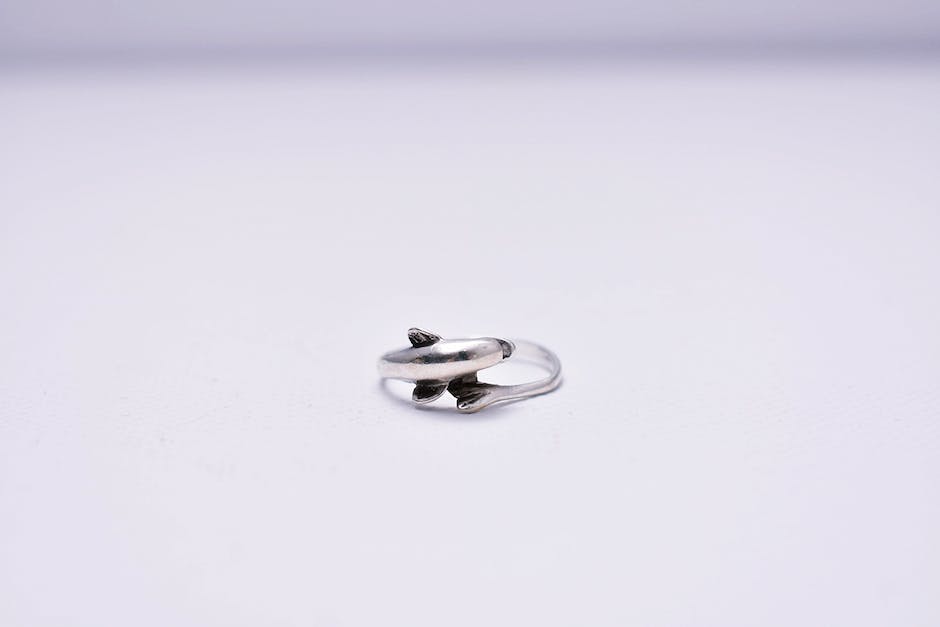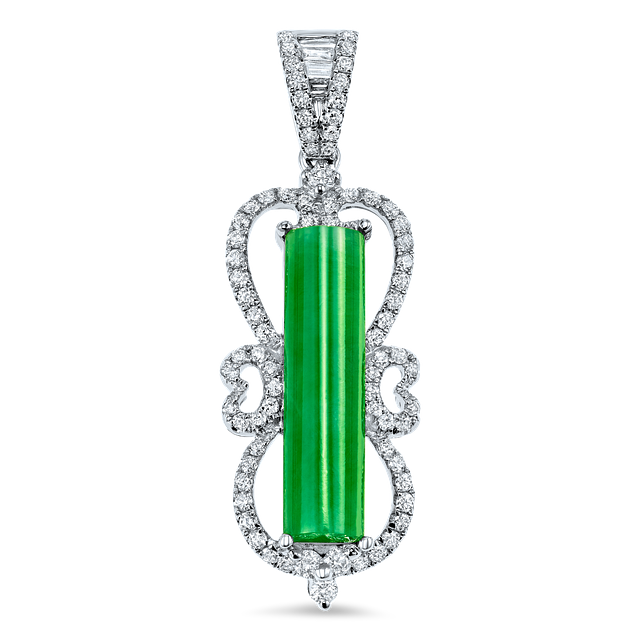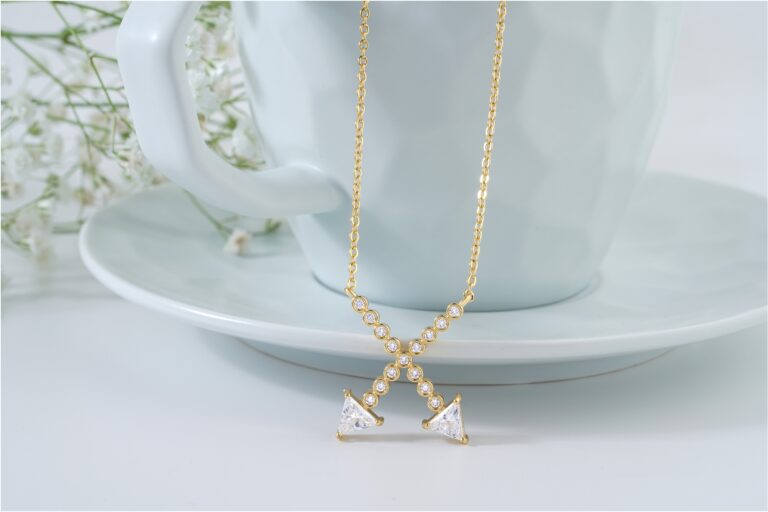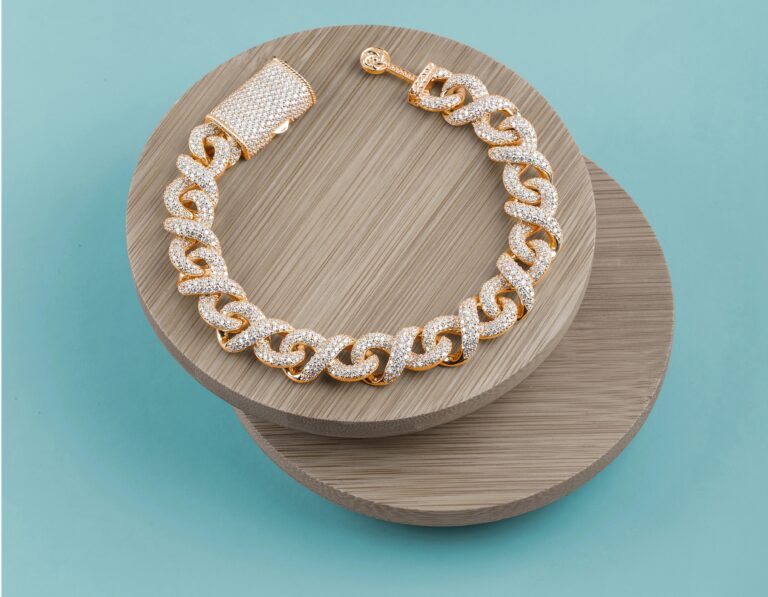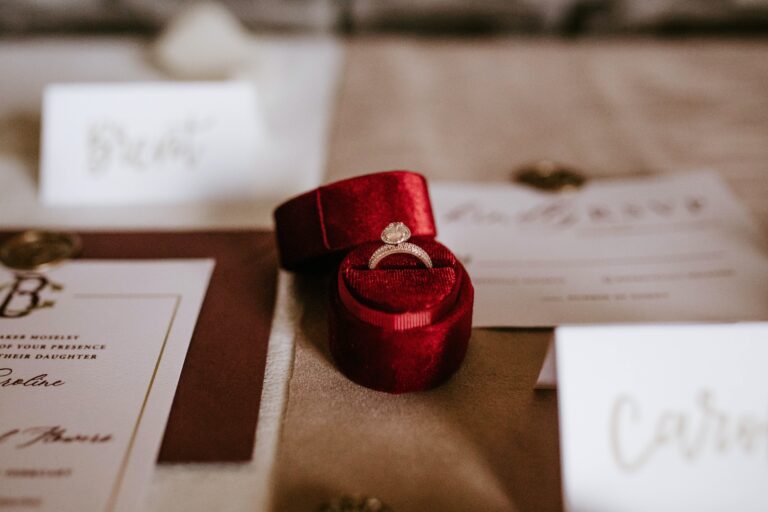Is Platinum Better Than Gold
Gold and platinum have long captivated humanity with their enchanting allure. These precious metals hold a special place in our hearts, representing wealth, luxury, and status. While both gold and platinum share similar characteristics, a debate lingers: which of these dazzling elements reigns supreme? In this article, we will delve into the merits of platinum and gold, dissecting their qualities and exploring the factors that make one metal shine brighter than the other. So, grab a cup of coffee and join us on this quest to uncover the ultimate question – is platinum truly better than gold?
Table of Contents
- Is Platinum Better Than Gold: Exploring the Allure of Precious Metals
- Unleashing the Beauty: Comparing the Aesthetics of Platinum and Gold
- A Battle of Luster: Examining the Durability and Longevity of Platinum and Gold
- Investment Potential Unveiled: Weighing the Financial Advantages of Platinum and Gold
- The Science Behind the Shine: Decoding the Chemical Properties of Platinum and Gold
- Making the Right Choice: Practical Recommendations for Selecting Between Platinum and Gold
- FAQs
- The Way Forward

Is Platinum Better Than Gold: Exploring the Allure of Precious Metals
When it comes to the battle of the precious metals, Platinum and Gold have always fascinated people with their allure. Both metals have unique properties and qualities that make them highly valuable and sought after. Let’s delve into the comparison of these two glamorous metals to determine whether Platinum reigns supreme over Gold.
Platinum, known for its stunning silver-white luster, has captured the hearts of many due to its rarity and durability. Here are a few reasons why Platinum stands out:
- Superior Durability: Platinum is incredibly durable, making it perfect for jewelry and other items that need to withstand everyday wear and tear.
- Hypoallergenic: Unlike some gold alloys, Platinum doesn’t contain nickel, making it an excellent choice for those with sensitive skin.
- Higher Density: With a greater density than Gold, Platinum feels substantial and luxurious when worn.
Now, let’s shift our focus to Gold, a metal that has captivated civilizations for centuries:
- Enduring Value: Gold has been a symbol of wealth and prestige throughout history, making it a reliable investment.
- Wide Color Range: Gold can be crafted into different shades, such as yellow, white, and rose, providing versatility in jewelry design.
- Long-standing Tradition: Gold has a rich cultural significance and is often associated with celebration, love, and commitment.
Overall, the decision between Platinum and Gold boils down to personal preference and desired attributes. Whether you lean towards the unmatched durability and hypoallergenic qualities of Platinum or are captivated by the enduring value and timeless tradition of Gold, both metals have their own unique allure. Whether you choose Platinum or Gold, rest assured that you will be adorning yourself with a precious metal that exudes elegance and sophistication.
Unleashing the Beauty: Comparing the Aesthetics of Platinum and Gold
When it comes to jewelry and luxury accessories, two metals dominate the scene: platinum and gold. Both exude a timeless elegance and coveted appeal, but what sets them apart in terms of aesthetics? Let’s delve into their characteristics and compare the breathtaking beauty they offer.
Platinum, known as the king of metals, boasts a lustrous and captivating allure. With its white hue, it effortlessly complements any skin tone and outfits, making it a versatile choice for jewelry connoisseurs. Its rarity and density lend it an air of exclusivity, making platinum pieces highly sought-after and cherished. Moreover, the consistency of its color over time ensures that platinum jewelry stays radiant for years to come. Whether it’s a dazzling diamond ring or an intricate necklace, platinum effortlessly enhances the brilliance of gemstones, adding a touch of sophistication to any ensemble.
On the other hand, gold has an undeniable allure that has captivated humanity for centuries. Its warm and rich tones add a touch of warmth to any piece of jewelry, creating a sense of luxury and opulence. The versatility of gold allows it to be crafted into various shades, including yellow, white, and rose gold, ensuring there’s a hue to suit every taste and style. Another noteworthy characteristic of gold is its malleability, making it an ideal metal for intricate designs and fine detailing. Its ability to hold intricate patterns and textures creates a mesmerizing visual appeal, whether it’s an engraved bangle or an ornate pendant.
In summary, while platinum and gold both possess their unique aesthetics, their distinct properties cater to different preferences and styles. Platinum’s striking white hue and enduring radiance make it a timeless choice, while gold’s warm tones and versatility allow for endless creative possibilities. Whichever metal you choose, both platinum and gold possess an inherent beauty that adds a touch of magnificence to any jewelry collection.
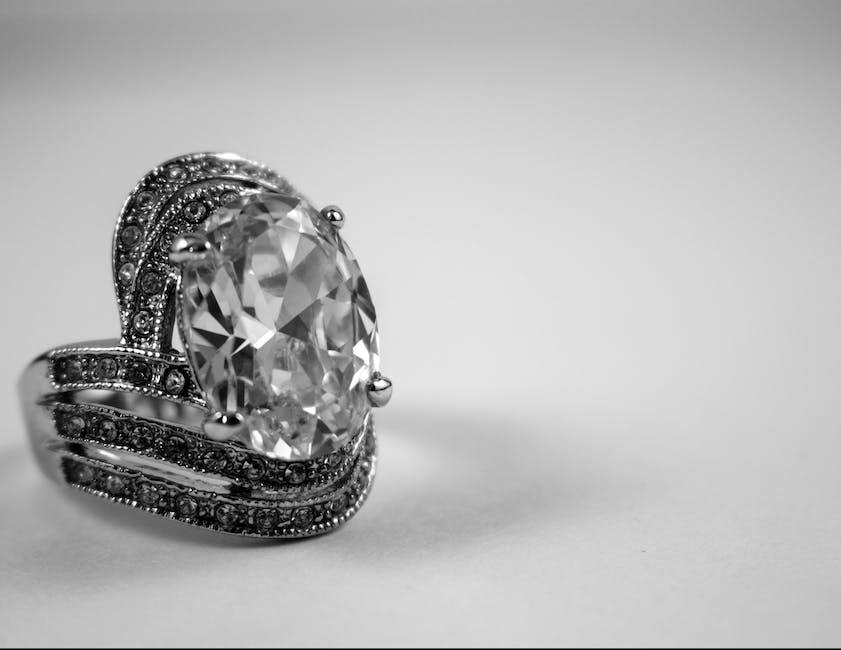
A Battle of Luster: Examining the Durability and Longevity of Platinum and Gold
When it comes to precious metals, two contenders stand out from the crowd: platinum and gold. Both renowned for their beauty and allure, these metals have captivated humanity throughout history. However, when it comes to durability and longevity, a fierce battle unfolds between these shimmering rivals.
Platinum, known as the “king of metals,” boasts an exceptional strength that surpasses gold. Its natural white hue, remarkably resistant to tarnish, makes it an ideal choice for jewelry. Platinum’s hardness means it can withstand constant wear and tear without losing its charm. Moreover, this magnificent metal holds intricate details and settings securely in place, ensuring that every facet of a design remains intact.
- Advantages of Platinum:
- Unmatched strength and durability
- Natural white color
- Resistance to tarnish
- Secure setting of intricate details
On the other hand, gold exudes a timeless elegance that has mesmerized civilizations for centuries. Its versatility and malleability allow it to be shaped into intricate designs, making it a favorite among jewelers. Although gold is softer than platinum, it still possesses impressive durability, especially when blended with other metals to increase its strength. Gold’s warm yellow tint has a radiant glow that enhances a piece’s overall allure, ensuring it stands the test of time.
- Advantages of Gold:
- Timeless elegance and allure
- Malleability for intricate designs
- Impressive durability, especially when alloyed
- Warm yellow hue with a radiant glow
While platinum and gold engage in this intense battle of luster, both metals possess unique qualities that make them irresistible to jewelry enthusiasts. Whether it’s the unparalleled strength and resistance of platinum or the timeless elegance and versatility of gold, each metal offers its own enchanting allure, ensuring that both remain eternal favorites for generations to come.
Investment Potential Unveiled: Weighing the Financial Advantages of Platinum and Gold
Platinum and gold have long been heralded as valuable investments, but how do they stack up against each other in terms of financial advantages? Let’s dive into their investment potential and compare the two metals.
Platinum, known for its stunning white luster, holds a unique position in the market. With its scarcity and strong demand in various industries like automotive and electronics, platinum boasts a high intrinsic value. This precious metal has served as a reliable hedge against inflation, making it an attractive option for long-term investors. Additionally, platinum is highly resistant to corrosion, adding to its allure for those seeking durability in their investment portfolios. Furthermore, platinum coins and bars are highly sought after by collectors and can fetch a premium in the numismatic market.
On the other hand, gold, with its timeless allure and remarkable resilience, has been a trusted store of value for centuries. Its consistently high liquidity, malleability, and divisible nature have made it an ideal investment for those looking to diversify and safeguard their wealth. This yellow metal shines particularly bright during times of economic uncertainty, as it is often regarded as a safe haven asset. Gold’s stable supply and high demand ensure that it maintains its value over time, making it a reliable long-term investment option. Additionally, gold jewelry holds immense cultural and sentimental value, adding a layer of personal significance to this precious investment.
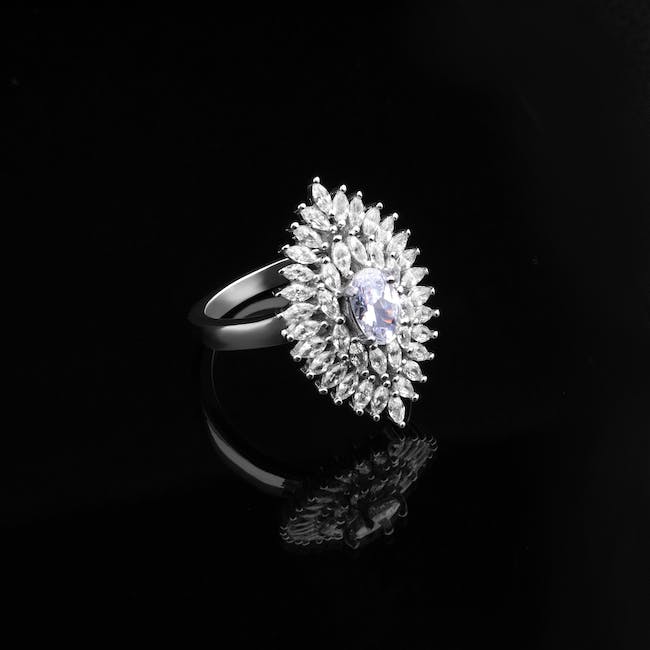
The Science Behind the Shine: Decoding the Chemical Properties of Platinum and Gold
When it comes to precious metals, platinum and gold are often sought after for their exquisite shine and beauty. But have you ever wondered what gives these metals their lustrous allure? Let’s dive into the fascinating science behind the shine and explore the chemical properties that make platinum and gold so unique.
Platinum, known for its stunning silvery-white color, is a remarkable metal with exceptional durability. It is resistant to corrosion and oxidation, making it highly valued in various industries. The secret behind platinum’s resilience lies in its chemical properties. It has a high melting point of 1,768 degrees Celsius, allowing it to withstand extreme temperatures. Additionally, platinum is incredibly dense and heavy, making it more durable and less prone to wear and tear compared to other metals. These unique properties, combined with its excellent electrical conductivity and catalytic abilities, make platinum an essential component in numerous applications such as jewelry, electronics, and even catalytic converters in cars.
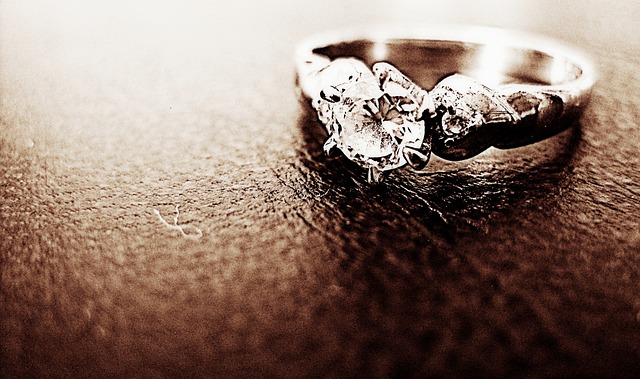
Making the Right Choice: Practical Recommendations for Selecting Between Platinum and Gold
When it comes to choosing between platinum and gold, it’s essential to weigh the practical factors that will help you make the right decision. Below, we provide you with practical recommendations to consider before selecting one over the other.
1. Durability: Both platinum and gold are durable metals, but platinum is known to be extremely resistant to wear and tear. If you’re someone who leads an active lifestyle or frequently uses your jewelry, platinum might be the better choice.
2. Cost: Gold is generally more affordable than platinum due to its lower density. If budget is a significant consideration for you, opting for gold can be a practical choice without compromising on elegance.
3. Allergies: If you have sensitive skin or are prone to metal allergies, platinum is an ideal option. Unlike gold, platinum is hypoallergenic, making it suitable for those with skin sensitivities.
4. Maintenance: While both platinum and gold require maintenance, it’s worth noting that platinum is relatively easier to maintain. It naturally develops a refined patina over time, whereas gold requires regular polishing to maintain its luster.
5. Style Preference: Consider your personal style and the look you want to achieve with your jewelry. Gold has a classic, warm appeal, while platinum exudes a contemporary and sleek aesthetic.
In conclusion, by considering factors such as durability, cost, allergies, maintenance, and personal style preference, you can make an informed decision between platinum and gold for your jewelry. Remember, both metals offer their unique advantages, so choose what best suits your needs and preferences.
FAQs
Q: Is platinum better than gold?
Whether platinum is better than gold depends on the context and what criteria you are considering. Here are some factors to consider when comparing platinum and gold:
- Value and Cost: Historically, platinum has often been more expensive than gold due to its rarity and the difficulty of mining and refining it. However, market prices can fluctuate based on supply and demand, economic conditions, and other factors.
- Durability: Both platinum and gold are highly durable and resistant to tarnish, corrosion, and wear. Platinum is denser and heavier, which can make it more durable in certain jewelry applications.
- Purity: Both metals are naturally occurring and can be found in relatively pure forms. However, the way they are used in jewelry often involves alloys. Gold is commonly alloyed with other metals to create different shades (e.g., white gold, rose gold) and to enhance its durability. Platinum is often used in a purer form in jewelry.
- Color and Appearance: Platinum and white gold have a similar appearance, but platinum’s color is naturally more grayish-white, while white gold is alloyed with metals like nickel or palladium to achieve its color. Some people prefer the slightly cooler tone of platinum, while others prefer the warmth of gold.
- Hypoallergenic Properties: Platinum is often considered hypoallergenic and is a good choice for people with sensitive skin, while some gold alloys can cause allergic reactions in some individuals due to the presence of certain metals in the alloy.
- Industrial Uses: Platinum has a range of industrial uses due to its high melting point, corrosion resistance, and catalytic properties. It’s used in various industrial processes and in devices like catalytic converters in automobiles. Gold also has industrial uses, but platinum’s properties make it valuable in specialized applications.
- Cultural and Symbolic Value: Gold has held cultural and symbolic value for millennia and is often associated with wealth, power, and prestige. Platinum has gained similar status in more recent history and is often associated with modern luxury and exclusivity.
- Market Trends: The desirability and value of platinum and gold can be influenced by market trends, investment strategies, and cultural preferences. These factors can change over time.
Q: What makes platinum different from gold?
A: Platinum and gold are distinct elements, differing in their properties, availability, and uses.
Q: Is platinum more valuable than gold?
A: Yes, platinum is generally more valuable than gold due to its rarity and demand in various industries.
Q: Which metal is more durable?
A: Platinum is renowned for its exceptional durability, making it less prone to scratching or losing shape compared to gold.
Q: Does platinum or gold tarnish?
A: Unlike gold, platinum doesn’t tarnish or corrode, maintaining its lustrous appearance over time.
Q: Which metal is hypoallergenic?
A: Both platinum and gold can be hypoallergenic, but platinum is often recommended for those with sensitive skin due to its purity and lack of alloys.
Q: Is platinum more luxurious than gold?
A: Luxuriousness is subjective, but platinum’s higher value and rarity often associate it with luxury.
Q: Can you resize platinum and gold rings?
A: Yes, both platinum and gold rings can be resized by a professional jeweler.
Q: Which metal is more popular for engagement or wedding rings?
A: Gold has traditionally been more popular for engagement and wedding rings, but platinum’s popularity has been steadily growing.
Q: Which metal requires more maintenance?
A: Both metals require routine maintenance, such as cleaning and polishing, but platinum’s durability means it’s less likely to need extensive repairs.
Q: Is platinum or gold better for investment?
A: As an investment, both platinum and gold have their pros and cons. It’s advisable to consult with a financial advisor for personalized advice.
Q: Can I mix platinum and gold jewelry?
A: Mixing platinum and gold jewelry is a matter of personal preference. Some people enjoy the contrast, while others prefer a uniform metal look.
Q: Which metal should I choose?
A: The choice between platinum and gold ultimately depends on your personal style, budget, and preferences. Consider factors such as durability, value, and aesthetic appeal to make an informed decision.
Wrapping Up
In conclusion, when it comes to the age-old debate of platinum versus gold, there is no definitive answer as to which one is better. Both metals have their own unique qualities and advantages, making them popular choices for jewelry and investments. While platinum offers superior durability and a beautiful white sheen, gold holds an unparalleled timeless appeal and symbolizes wealth and luxury. Ultimately, the choice between platinum and gold depends on personal preference, budget, and the specific purpose for which the metal is being used. So, whether you opt for the elegant allure of platinum or the classic charm of gold, remember that both materials possess their own distinct beauty and value.

